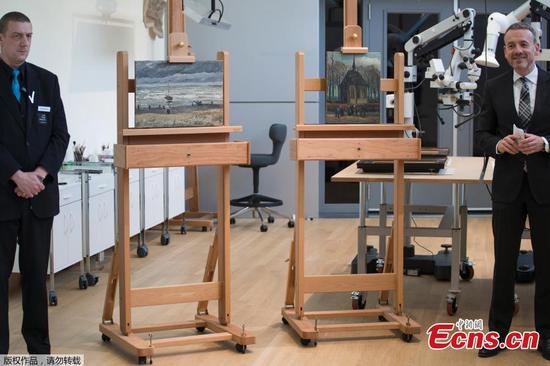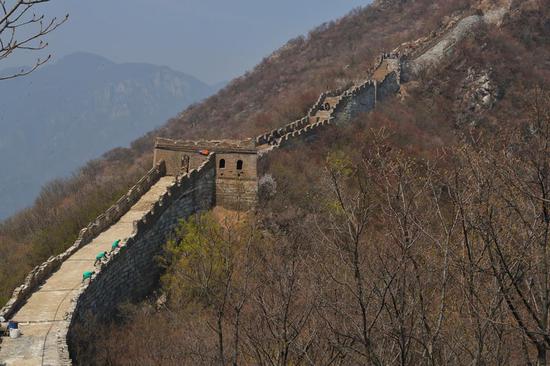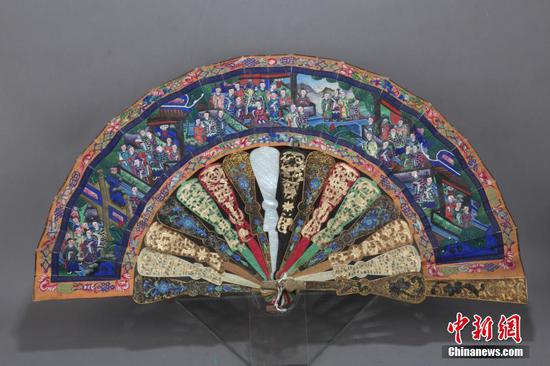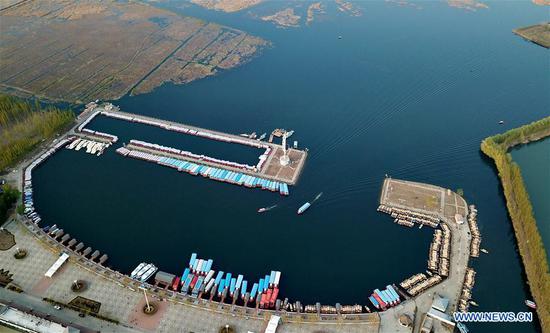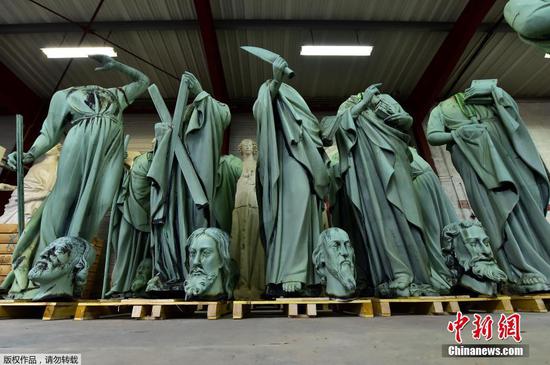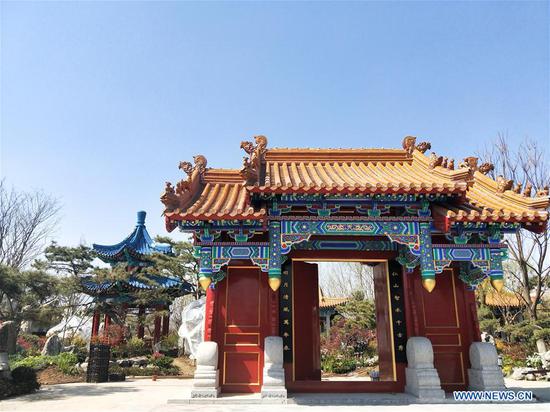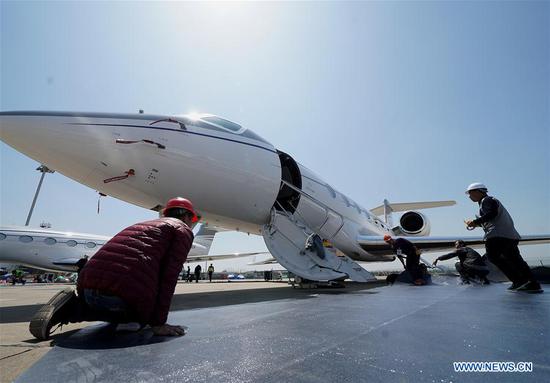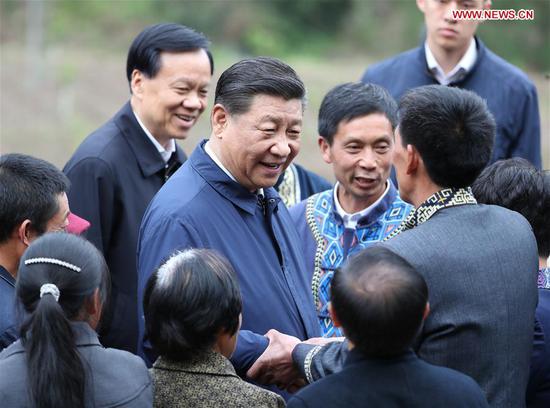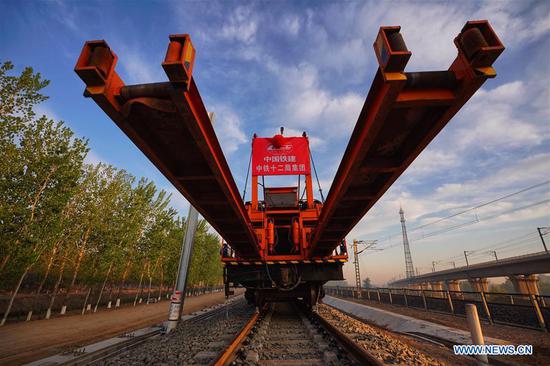Experts from around the world say it has greatly reduced poverty and driven development
A leading academic said it is only a Western view that ordinary people have been left behind by globalization.
Amitav Acharya, distinguished professor of international relations at American University in Washington, said countries like China and other developing nations have seen unprecedented improvements in their living standards in recent decades.
He was responding to remarks by Klaus Schwab, founder of the World Economic Forum, who said recently that "a substantial part of society" had become disaffected with globalization since the global financial crisis of 2008.
"Whose society is he referring to? The polls show that people in China and India significantly support globalization," he said.
"I travel the world like Professor Schwab does, but I perhaps travel more in the developing world than he does."
Acharya, author of The End of American World Order, spoke with China Daily at the fifth annual China and Globalization Forum, held by the Center for China and Globalization, a Beijing-based independent think tank.
Leading academics, thinkers and businesspeople from China and around the world addressed the theme of the meeting, "Further Opening Up to Meet the Challenges of Globalization".
Daniel Ikenson, director of the Herbert A. Stiefel Center for Trade Policy Studies at the Cato Institute, a US think tank, said the debate about globalization should center more on which people have benefited or not from globalization, and not which countries.
"Most countries that partook in the (globalization) system benefited, but it is within each country - including the United States - where the benefits have been unequally distributed," he said.
Terry Miller, director of the Center for International Trade and Economics at The Heritage Foundation, another US think tank, believes globalization has delivered major benefits.
"Globalization has had tremendous success in reducing poverty worldwide here in China and in other countries," he said.
"The sort of commercial, economic and cultural linkages that are involved in globalization have been proved to contribute to peaceful interactions among countries, and it is really also the way forward to achieve a more prosperous future for the world."
Berenice Voets, director of public affairs of the Hinrich Foundation, a Hong Kong-based charitable foundation that promotes sustainable trade, said globalization had driven development and delivered people from poverty.
"The current model has perhaps reached an impasse, and there is an acknowledgment that we need new solutions and new rules to continue to make the system work," she said.
There was much debate among those attending the one-day forum on April 14 as to what those new rules should be.
Tim Stratford, chairman of the American Chamber of Commerce in China, said reform of the World Trade Organization, which sets the rules for international trade, should be high on the agenda.
"The United States and other countries have felt that the WTO architecture has not kept up with the demand and challenges of globalization," he said.
"If we can't reform the architecture, we may all end up in different regional groups."
Adam Dunnett, secretary-general of the European Union Chamber of Commerce in China, agreed that WTO reform was at the center of what was needed.
"A lot of the bilateral challenges and tensions we are facing today need a multilateral response and WTO reform is what is needed, particularly in relation to dealing with trade and investment issues," he said.
Many of the experts at the forum said they believed China was making constructive additions to the architecture of the global system with the Belt and Road Initiative - which will be the focus of the second Belt and Road Forum for International Cooperation later this month in Beijing - and the Asian Infrastructure Investment Bank, which was founded in 2016.
Justin Vaisse, director-general of the Paris Peace Forum, which held its first international summit last year, said China's agenda was not to smash the current system.
"China is naturally reclaiming its rightful place in the current institutions of global governance and it is also creating others. We in the West have to make sure we make room for China, but China at the same time should not duplicate or compete with existing institutions," he said.
Many agreed that greater understanding between nations was important for globalization.
One initiative in China that aims to achieve this is Schwarzman College at Tsinghua University, which was founded by the US financier Stephen Schwarzman.
It is based on the Rhodes Scholarships of Oxford University and runs a program aimed at producing the global leaders of the future.
Xue Lan, dean of the college, said the future of globalization was dependent on a shared understanding. "This is not just between China and the US but between India and China, China and Pakistan and other countries. This kind of global understanding is so important, and the best way to achieve it is through education," he said.
Acharya from American University believes too much of the debate about globalization is from a Western point of view.
He said it started, according to the West's narrative, with the invention of the steam engine in the UK, which gave birth to the Industrial Revolution and the so-called modern world.
"The idea that this small Western invention represents the first modernity is a very problematic concept. It ignores the fact that we had Muslims trading in the 8th Century, and the whole silk road was a form of globalization," he said.
"Until the 18th Century, China was the No 1 economy, and the Mughal Empire in India the No 2."












